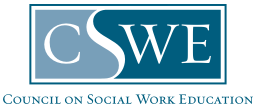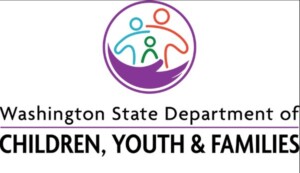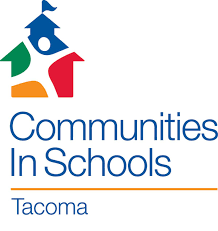Program Highlights
There are two pathways to enter the MSW program:
- Advanced Standing – a 14-month, 36 credit program for students who have an undergraduate degree in social work.
- Regular Standing – a 24-month, 60 credit track for students who do not have an undergraduate degree in social work.
Courses are offered primarily on campus in late afternoons or early evenings on Wednesdays. Some components of each course are delivered online, either synchronously or asynchronously. Classes are held throughout the year as well as in summer and January Term (J-Term). Students will have the option to complete a J-Term study away to travel abroad or locally to learn and compare other health models.
PLU’s MSW Program is currently in Pre-Candidacy for Accreditation by the Council on Social Work Education’s Board of Accreditation. Students who enter programs in Pre-Candidacy will be retroactively recognized as having graduated from a CSWE-accredited program once the program attains Initial Accreditation.
Program Curriculum & Schedule
Degree Requirements
Advanced Standing 1-year program (14 months), 36 credits
Year One
| Summer (4-8 credits) | Fall (12 credits) | January Term (4 credits) | Spring (8 credits) | Summer (8 credits) |
|---|---|---|---|---|
| SOCW 525: Anti-Racism, Diversity, & Equity in Social Work Practice (4) | SOCW 555: Social Work in Health Care (4) | SOCW 570: Comparative Health Care (4) (Study Away) | SOCW 560: Mental Health Assessment & Intervention (4) | SOCW 565: SUD Assessment & Intervention (4) |
| SOCW 535: Advanced Social Work Foundations (if needed) (4) | SOCW 586: Advanced Practicum Experience II (4) | SOCW 596: Advanced Practicum Experience III (4) | SOCW 573: Policy Practice & Advocacy in Health Care (4) | |
| SOCW 500+: Elective (4) |
*Subject to Change: SOCW 525 may be offered in the J-term.
**Note: Students who earned their BSW degree 8 or more years ago upon the time of applying for the MSW degree, and who have not been working at least part-time in a social services-related field for every year since earning the BSW degree, must take the bridge course (SOCW 535: Advanced Social Work Foundations). This will add an additional 4 credits, increasing the total number of required credits to 40.
Regular Standing 2-year program (24 months), 60 credits
Year One
| Fall (8 credits) | January Term (4 credits) | Spring (8 credits) | Summer (8 credits) |
|---|---|---|---|
| SOCW 505: Human Behavior & the Social Environment (4) | SOCW 500+: Elective (4) | SOCW 515: Social Work Theory & Practice II (4) | SOCW 525: Anti-Racism, Diversity, & Equity in SW Practice (4) |
| SOCW 510: Social Work Theory & Practice I (4) | SOCW 575: Foundational Practicum Experience I (4) | SOCW 532: Social Work Research Methods (4) |
Year Two
| Fall - Year 2 (12 credits) | J-Term (4 credits) | Spring - Year 2 (8 credits) | Summer - Year 2 (8 credits) |
|---|---|---|---|
| SOCW 555: Social Work in Health Care (4) | SOCW 570: Comparative Health Care (4) (Study Away) | SOCW 560: Mental Health Assessment & Intervention (4) | SOCW 573: Policy Practice & Advocacy in Health Care (4) |
| SOCW 585: Advanced Practicum Experience II (4) | SOCW 595: Advance Practicum Experience III (4) | SOCW 565: SUD Assessment & Intervention (4) | |
| SOCW 500+: Elective (4) |
"What I appreciate most about my program is the small cohort size, which fosters strong communication between staff and colleagues. The coursework is both challenging and engaging, ensuring that my time is spent on meaningful learning." Tiffany '26
Practicum Experience
The practicum experience is the signature pedagogy in social work education. At the Master’s level, students are required by CSWE to complete at least 900 hours of practicum work. Students have opportunities to practice their learned skills in a wide variety of settings under the supervision of an MSW-trained social worker.
Field hour requirements:
- Advanced Standing Program (14 months), 640 hours (320 hours each for two semesters)
- Regular Program (24 months), 960 hours (320 hours each for three semesters)
Examples of Placement Agencies
Washington State Department of Children, Youth, and Families (DCYF)
Communities in Schools
Consejo Counseling and Referral Services
Consejo is a licensed, award-winning treatment center offering outpatient behavioral health care, trauma-informed care, and supportive transitional housing to survivors of domestic violence and sexual assault, as well as their families. Since 1978, Consejo has been providing services to children, youth, adults, and elders in King, Pierce, and Thurston/Mason Counties.
School Social Worker ESA Certificate
You have the option to add on a School Social Worker Educational Staff Associate (ESA) Certificate while earning your degree.
Available for both MSW students and those who already hold a Master’s degree in Social Work, these courses are offered during the summer term (June to mid-August), and meet twice a week in the evenings.
LEARN MORE about the School Social Worker ESA Certificate. Please note that there is an additional cost to add the certificate.
Course Descriptions
Courses are offered primarily on campus in late afternoons or early evenings on Wednesdays. Portions of each class are offered online (either synchronously or asynchronously).
SOCW 505: Human Behavior & the Social Environment (4)
This course is designed to introduce students to human behavior in the social environment through a critical race lens as students begin to explore theory and practice with diverse clients in healthcare settings. Students will explore the concepts of privilege, oppression, and social justice in their work with diverse clients. This course will emphasize the impact discrimination and oppression by individuals and society have on the developmental experience for people from culturally diverse backgrounds and orientations. Students will develop an understanding of the ecological systems perspective and how it is utilized in social work. Issues of power and oppression will be explored at the micro, mezzo, and macro levels of social work practice.
SOCW 510: Social Work Theory & Practice I (4)
This course provides a foundation and background to the practicum of social work practice. Students will be introduced to the history of social welfare and the development of the social work profession in the United States. They will learn about foundational theories that apply to generalist social work practice as well as a more focused exploration of work with individuals and families. Content on working with diverse populations will be integrated to assist students in developing social work practice skills using various theoretical constructs (e.g. strengths perspective, problem-solving, empowerment) and evidence-informed practices. Additional focus on assisting students in developing a professional self with an integration of social work values and ethics throughout the course. Skill building will be practiced using role plays, videos, and written assignments in preparing students for their practicum experience in the spring semester.
SOCW 515: Social Work Theory & Practice II (4)
Students will build on the foundation provided in Social Work Theory & Practice I to explore work with groups, organizations, and communities. Content on working with diverse populations will be incorporated and students will be encouraged to use an anti-racist lens to look at social work theories that underlie mezzo and macro level practice. Prerequisite: SOCW 510.
SOCW 525: Anti-Racism, Diversity, & Equity in Social Work Practice (4)
In this course, human diversity is broadly explored and defined to include race, ethnicity, culture, nationality, religion, sexual orientation, gender identity and expression, and ability. The course content looks critically at privilege and the ways in which a society’s cultural practices and structure may oppress, marginalize, and alienate some while enhancing power and privilege of others. Students will explore how awareness of these factors influences delivery of social work practice in healthcare and mental healthcare settings.
SOCW 532: Social Work Research Methods (4)
Social work relies on careful collection and analysis of quantitative and qualitative data to answer theoretical, empirical, and applied research questions. This course will introduce students to methods of data collection and analysis in social work and provide students with the tools to engage in this central component of scientific inquiry. This course lays the foundation for social research, including an introduction to the scientific method and ethics. Students will learn about several of the most used methods of research in social work, including experiments, surveys, interviews, practicum research, single subject design, content analysis, and analysis of secondary data. Research design, conceptualization, and sampling will be covered. Students will apply methods in course assignments and will demonstrate their cumulative learning through preparation of a research proposal using one of the methods.
SOCW 535: Advanced Social Work Foundations (4)
This course is provided for incoming students into the advanced standing program who meet certain criteria. The course provides a review of the central social work theories, values, and skills that enhance the understanding of social work assessment and intervention at multiple system levels. Students will also review research methods as well as history and policy underlying the social work profession and social work practice.
SOCW 555: Social Work in Health Care (4)
This course builds on generalist social work theory and practice with a look at advanced assessment and intervention skills in healthcare settings across micro, mezzo, and macro practice settings. Theory will guide assessment and intervention selection for social work practice in healthcare settings. Issues of diversity and equity in practice will be addressed to meet the needs of multiple constituencies. Prerequisite: SOCW 505, SOCW 510, SOCW 515, or acceptance into the MSW program with advanced standing status.
SOCW 560: Mental Health Assessment & Intervention (4)
This advanced course helps students develop a multi-dimensional assessment and intervention framework for clinical social work practice. This course builds on Social Work Theory & Practice from a Racial Justice Perspective and focuses on bio, psych, social, and spiritual assessment, and intervention at the individual and family levels, and includes work with children, youth, adults, and older adults. The DSM-5-TR classification system is discussed within the context of social work values and ethics. Several empirically based assessment tools and intervention techniques that are grounded in social work practice are explored to meet the needs of clients and families from diverse backgrounds. Prerequisite: SOCW 505, SOCW 510, SOCW 515 or acceptance into the MSW program with advanced standing status.
SOCW 565: SUD Assessment & Intervention (4)
This course provides a broad understanding of the stages, processes, and effects of substance use disorders, the social and psychological dynamics of substance use disorders, and the social worker’s role in prevention, intervention, and aftercare, including recovery and relapse prevention. Students will also learn specific interventions for substance abuse treatment, such as motivational interviewing (MI) and cognitive behavioral therapy (CBT).
SOCW 570: Comparative Health Care (4)
In this course, students will have the opportunity to visit and learn about health care in another country. They will explore different cultural meanings attached to health and well-being, see how healthcare policy is implemented in other countries, and learn about access to and quality of health care in another global context. Prerequisite: SOCW 555.
SOCW 573: Policy Practice & Advocacy in Health Care (4)
The course builds on policy content offered in the foundation policy course. The course provides students with knowledge, skills and abilities for understanding the interrelationship between developments in health policy, the health care delivery system and social work practice. Diversity, inequality, social and economic justice are continuing themes of study in the advanced concentration year. Prerequisite: SOCW 555, 570.
SOCW 576: Foundational Practicum Experience I
Students are assigned to a practicum setting (e.g., healthcare, mental healthcare, or social service agency) and participate under social work (practicing MSW degreed social worker) supervision and mentoring in the delivery of social work services. Students will have the opportunity to practice foundational social work skills including completing intakes, developing social histories, interviewing, developing intervention plans, analyzing policies relevant to practice, and other skills that the student, the practicum instructor, and faculty liaison mutually develop. The experience is a minimum of 320 clock hours. Along with practice in the community, students attend a regular classroom seminar, which provides students with the opportunity to integrate the content in their courses with their practicum experience learning activities. The seminar provides students with an opportunity to explore, question, and process their experiences in their placements Prerequisite: SOCW 505, SOCW 510.
SOCW 586: Advanced Practicum Experience II
Students are assigned to a practicum setting (e.g., healthcare, mental healthcare, or social service agency) and participate under social work (practicing MSW degreed social worker) supervision and mentoring in the delivery of social work services. Building on their foundational skills, students will begin to practice advanced social work skills of assessing, intervening with research informed practices, and assessing interventions with individuals, families, and groups. The experience is a minimum of 320 hours. Along with practice in the community, students attend a regular classroom seminar, which provides students with the opportunity to integrate the content in their courses with their practicum experience learning activities. Students develop a plan to monitor and evaluate their advanced clinical practice in their advanced practicum experience setting. The seminar provides students with an opportunity to explore, question, and process their experiences in practicum-related advanced clinical social work practices. Prerequisites: SOCW 576 or acceptance as advanced standing.
SOCW 596: Advanced Practicum Experience III
Students continue their advanced clinical practicum experience under social work (practicing MSW degreed social worker) supervision and mentoring in the delivery of social work services. Building on their advanced practice skills, students will continue to practice advanced social work skills of assessing, intervening with research informed practices, and assessing interventions with individuals, families, and groups. The experience is a minimum of 320 hours. Along with practice in the community, students attend a regular classroom seminar, which provides students with the opportunity to explore, question, and process their experiences in practicum-related advanced clinical social work practices. Students have the opportunity to prepare and present a capstone project to document their learning and skills related to the specialized competencies of the program. Students will also develop a professional resume and explore the MSW job search and licensure process. Prerequisites: SOCW 586.








